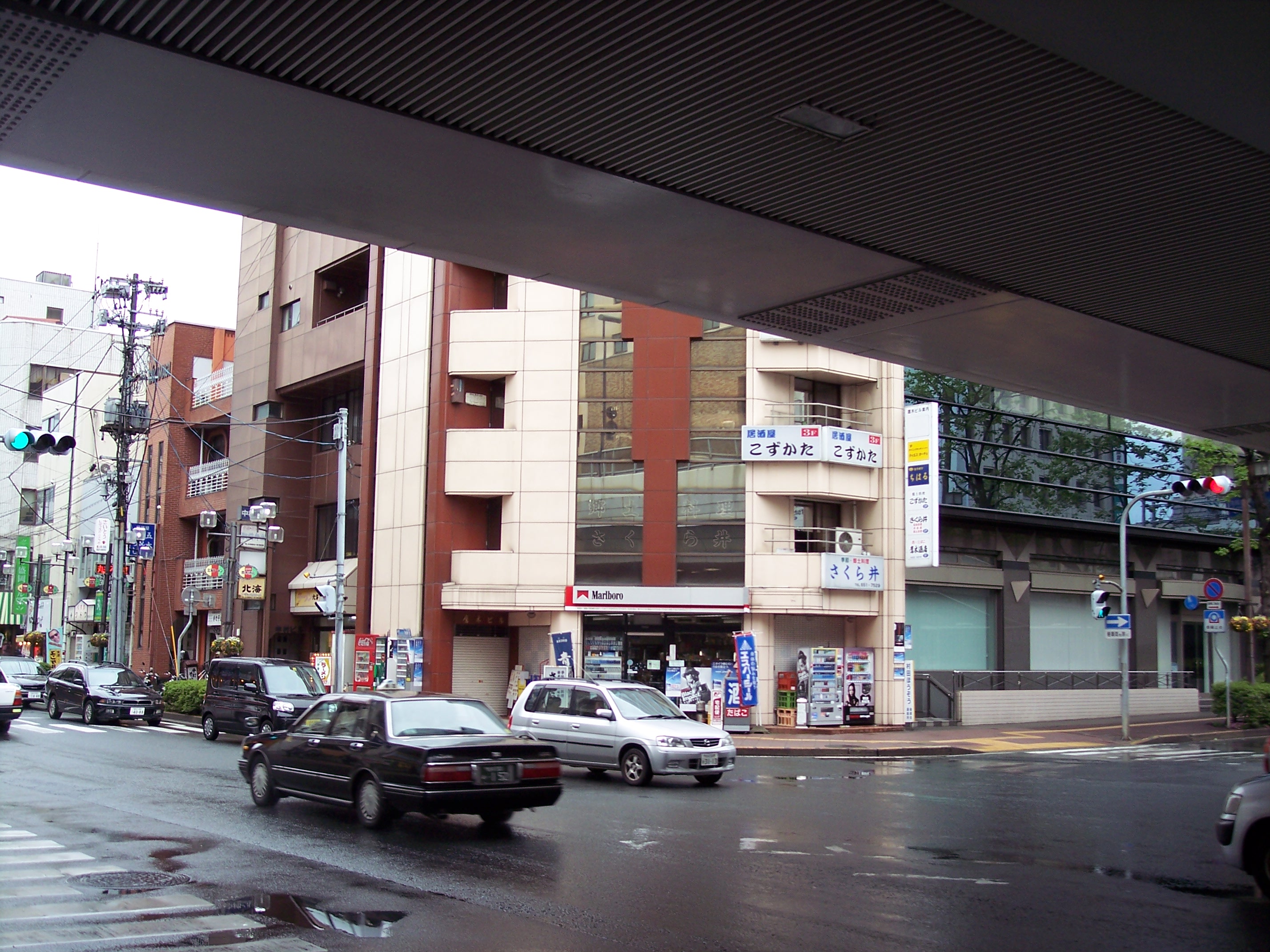A colleague and I were going to dinner one evening. He was Japanese, but not familiar with the city of Morioka Japan, so he asked at the hotel reception desk for a restaurant recommendation. He was told of a little family run business on the corner of the very next block. After crossing 2 streets and up one flight of stairs we were there.
My biological clock is all out of whack because of the jet lag from a 13 hour time zone change between Cincinnati and Japan, I was hungry and it was dinner time. However when we arrived, no one was in the restaurant. My colleague, Sakai-sensei, did not like the looks of an empty restaurant and tried to usher me back out the door. He was a native of Tokyo and an empty restaurant is a bad place to eat.
I was too slow on the trip out the door and the matron of the place cornered us and showed us to our seats. Sakai-sensei apologized to me saying maybe the woman the hotel desk was related to the restaurant owners.
The restaurant had about 6 floor level tables on tatami mats. Each table could seat 4 to 6 on the floor pillows. There was seating on box stools at the “bar” for four. So by my reckoning the whole place could accommodate 34 people. That estimate is kind of a stretch because the bar was cluttered with debris that looked to be 20 year old crates and barrels.
The whole restaurant reminded me of a flea market more than an eatery. The little old lady was less than 5’ tall with thick glasses poised half way down her nose and a black lanyard hanging from those around her neck. The tables and floor pillows were about the only hint that it was a restaurant pretty much nothing else matched a restaurant décor.
Sakai-sensei and I sat at the bar on two box-crates. There was no leg room for me at the bar because of the debris. From my perch on the crate I could see clearly the tiny kitchen complete with drawings and faded kid photos on the refrigerator. There was an ancient gas stove, I think cast iron and enamel, with two burners and a broiler. Behind the stove there had once been tile and now was grease saturated bare wood cross hatched with the grout used to hold tile in place.
Sakai-sensei continues to apologize and I assure him I like adventure and that sometimes places like this can be a treasure. I’m not too good at Japanese so he orders some yasai-salad, sashimi, broiled mackerel; a house specialty, rice and beer.
We were served a traditional pickle appetizer consisting of cucumber and radish by being informed that it was homemade like everything else. It was excellent, fresh tender yet still with a pleasant crunch in the vegetables. We asked for seconds. Instead of a small single serving bowl she brought a huge plate heaping with succulent pickles and radishes
Shortly after ordering a second couple come in. Actually they are from the same scientific conference we are part of – still wearing their badges. I take my conference identification off as soon as possible. I may be a geek, but I tend to not advertise it when traveling. We nodded to each other with wide eyed question marks on our faces. It becomes obvious that the hostess is the waitress is the chef. We only saw one employee and that includes my view of the kitchen.
A third and fourth group arrives bringing the house total to about 11 people. The mama-san scurried around taking orders at tables, over the bar as well as cooking and delivering food. I watched in awe as she prepared the mackerel, lit the gas stove and arranged the sashimi on a serving boat with seaweed and vegetables.
The sashimi was well prepared, very fresh, abundant and just lovely. The hot mackerel filet traveled about 10 feet in less than 20 seconds; from the broiler to our plates. It was lightly encrusted with a salty rub and a tender – juicy texture. The filets were served on a bed of mixed greens glazed with a salty marinade.
The meal was awesome. Some of the courses were slow in coming but the spectacle of this woman rushing around doing every job plus seeming pleasant and interested in our satisfaction made it a multi media evening. She was the entertainment as well as everything else in the restaurant.
Mama-san offered us desert but we were stuffed. As we paid our bill, she took our money, did I say she was the cashier; we gave her a tip, not required in Japan and she sincerely tried to refuse it. We insisted on giving her the tip, but what I wanted to do was hug her and applaud. Instead I shook her hand, bowed politely and kept saying “oishy” which means tasty. I hope she was pleased because I was.

I did not get the name of the restaurnat or a business card, but this is what it looked like from the Hotel.
 Posts
Posts